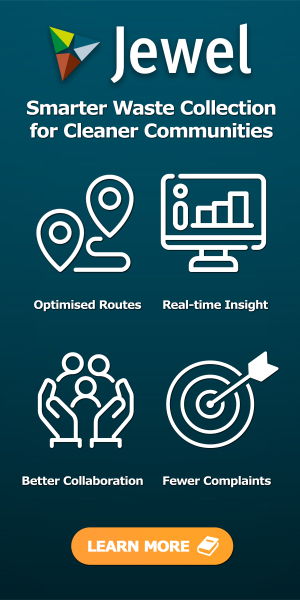The impact of COVID-19 and lockdown in March this year was an unparalleled challenge for everyone involved in the collection and disposal of waste. For WRAP’s Local Authority Support Team that meant first identifying how we could best support our LA partners and then meeting those needs, including supplying assets for crucial communications with residents.
By June, things were calmer and there was an opportunity to reflect on what had happened and what can be learned from this unique period. To get an idea of how the lockdown affected household waste streams, and local authorities’ responses to it, we spoke to officers from 27 local authorities across England, from Tyneside in the North East to Dorset in the South West. Although not a formal survey, the feedback we received provided a valuable and nuanced insight.
This is what we learned:
Increased household waste
Most authorities saw an immediate increase in the tonnages of dry recycling, particularly in April (typical increases reported to us were +25% when compared with April 2019). The increase was mainly fuelled by additional cardboard (some reported exceptional increases of >100%) and glass. Reassuringly, increased contamination was not widely highlighted as a significant problem.
The bring sites of authorities who don’t have kerbside glass collections were under a lot of pressure.
In May, the increases in tonnages were less marked. By June, some authorities reported that tonnages had returned to normal; others continued to see an increase on last year.
The increase in dry recycling also put increased pressure on Materials Recovery Facilities (MRFs) and re-processors. Most coped with the extra volumes; however, a small number of authorities were forced to divert material to alternative MRFs, incurring additional costs.
Residual waste also increased, although less significantly than the increase in dry recycling (typically +10 – 15% in April). The increase also appears to have been shorter lived.
Impact on collections
The findings from the ADEPT weekly surveys showed that, with the exception of garden waste collections, most kerbside collections were maintained throughout lockdown. However, our discussions with officers revealed some interesting insights that were not always captured or disseminated in the data that has been widely reported since April:
- The increased amount of materials to collect meant an earlier start and later finish for many crews, but one of the biggest issues facing managers was how to maintain social distancing in collection vehicles. Authorities responded to this challenge in two main ways:
- Reducing the number of collection crew members in a cab from three (a driver and two loaders) to two (a driver and one loader), with the second loader travelling separately in another vehicle. However, this solution is resource heavy and requires greater input from management.
- Collection crews operating as a ‘bubble’, with no mixing or interaction with other crews. This enabled crews to operate more or less as normal (although some authorities asked loaders to join their collection vehicle at the start of the round rather than at the depot, to avoid contact with others).
- Many authorities – understandably - decided to pull their garden waste services right at the beginning of lockdown. With the benefit of hindsight, some authorities said that if there is a ‘second spike’ they will try to maintain services until circumstances force them to suspend.
Business Continuity Plans
Many LAs had reviewed and updated their emergency plans in preparation for the UK leaving the EU and the potential impact on material flows. These updated plans proved their worth during the pandemic, although in many cases they will need to be revised again in light of the COVID-19 experience.
Working Together
Authorities that are members of county or regional partnerships said this was valuable, enabling them to disseminate coordinated and consistent messaging to householders. A positive outcome of the crisis has been to cement and rejuvenate partnership working.
Recognition of Collection Crews
The recognition of collection crews as Key Workers has been a great benefit, as have the levels of support and appreciation that they have received from the public. You can watch WRAP’s ‘thank you’ to collection crews here.

Re-opening of Household Waste and Recycling Centres (HWRCs)
The decision by most Waste Disposal Authorities (WDAs) to close their HWRCs received a lot of scrutiny. The measures put in place to enable them to reopen, including reduced access and online pre-booking, have been applied quite consistently across the country and allowed them to operate uninterrupted.
WISH guidance and WRAP support appreciated
The WISH guidance that was issued and updated throughout lock-down was universally viewed as being helpful. Authorities were also glad to have the editable communication assets provided by WRAP, which saved the time it would have taken to produce their own.

A Chance to Reflect
Some authorities found that a disruption to services has given them the opportunity to consider more efficient ways of working and/or other collection models which may not have been an option previously. Whether these changes will be permanent or temporary is something that WRAP is keen to monitor over the coming months.
If you are interested in receiving free one-to-one support from WRAP, we’d love to hear from you. Please contact one of our expert Collections and Recycling Advisors at la.support@wrap.org.uk


